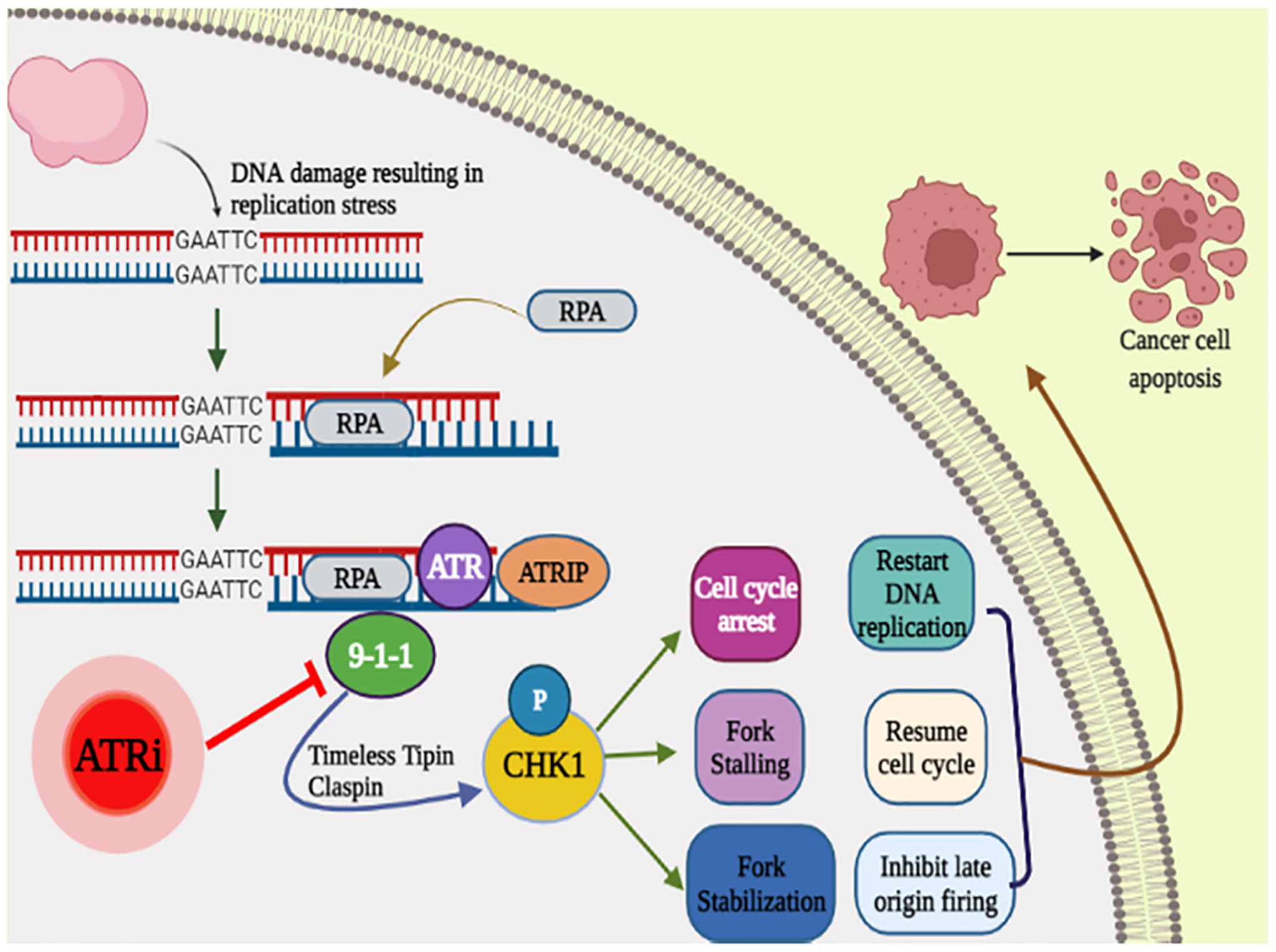Fig. 1.

Replication checkpoints and DNA damage Anticancer medications cause problems with replication. The slowing or halting of replication fork advancement causes replication stress. The ATR–CHK1 pathway is activated when DNA synthesis is inhibited or damaged, resulting in checkpoint responses. DNA damages can cause a latency in entering S-phase (the G1 checkpoint), limit the replication of damaged DNA, or even prohibit the cell from entering mitosis (G2 checkpoint). Because PARP and checkpoint proteins suppress fork collapse, antagonists of these proteins might enhance replication stresses, genomic instability, and, as a result, cellular demise.
